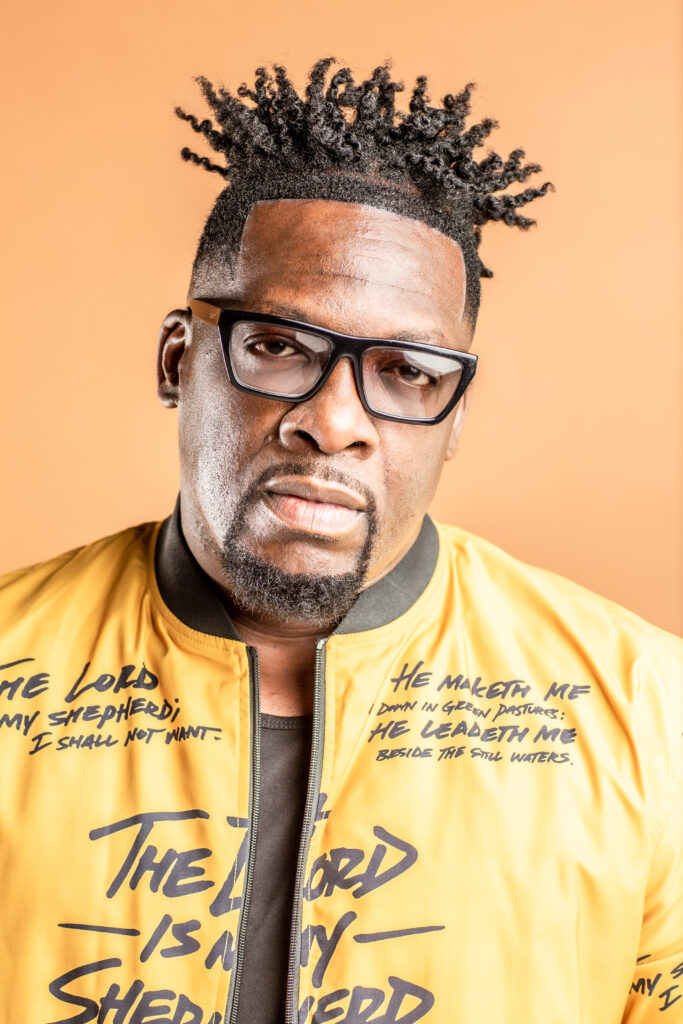Edwin Sheppard is the founder & CEO of the Blindfolded International Student & Cultural Exchange Program known as BISCEP in short form. The Miami resident is a lover of history & sharing his message of cultural awareness. He has a strong desire and passion to shatter people’s misinformed & often preconceived notions of what life is truly like for the native African people. His passion was further ignited & birthed out of the documentary he also created entitled Blindfolded: How They Hid My Heritage from Me which was based upon Sheppard’s research in Botswana & South Africa that also depicts what life in Africa is actually like to help extend his quest to debunk the most commonly held myths that African Americans in the US tend to believe. The commentary the documentary contains came from students at both Miami Central High School in Miami, FL. & Ledumang Senior School in Gaborone, Botswana.
You Spend a lot of time between Botswana & Miami for the exchange program. Can you share with us a bit of your own personal heritage & background?
I was intrigued with finding my roots which gravitated me towards Botswana as I researched my own foundation & background. I had a longing to learn more about what was hidden from me. I was born & raised in Miami, Florida to a Haitian-born mother & African American father from Jackson County, Georgia. Even with Miami’s large Haitian community, growing up Haitian was a bit difficult in the 80s, but I managed to persevere. I’ve now learned to embrace my heritage to the fullest.
In just a few days you will be having another Cultural Exchange experience between 10 students from Miami Central Senior High School traveling to Botswana as participants in the exchange program. How many exchange experiences would you say have taken place since the inception of the Blindfolded International Student & Cultural Exchange (BISCEP)?
Although this is our second time traveling abroad with students, our first group of students came in from Botswana in January 2020 prior to the pandemic. After taking a hiatus for two years, it was time now to complete the circle by taking students from Miami Central to Africa. After our return from Botswana in late July, we are geared up to begin plans to expand our reach to offer participation from more schools.
From your experience & research bridging the gap between African Americans in the US & the people of Botswana, you work to heal the misconceptions. What is one of the most inaccurate beliefs you have noticed?
Due to television’s negative portrayal of Africa, many people still think the country, in its entirety, is a jungle. Even with social media trends and afrobeat music on the rise, people still have this notion that Africa is a land of people running around with no clothes, severely poor, and desolate. Can you imagine being asked “do people in Africa still live in huts” in this day and age? It’s the most absurd question to ask but shows the lack of true knowledge of the great history and resilience of the continent of Africa.
When was the documentary Blindfolded: How They Hid My Heritage from Me officially released? Why was it of such great significance to create this film?
Blindfolded “How They Hid My Heritage from Me” was filmed in November and December of 2018 and released on February 16, 2019. It was important for me to dispel the negative perception Americans had of Africa for so long. The dialogue between Africans and African Americans proved very powerful. Both sides opened up & discussed real and true feelings about each other and even how our own cultural norms were impacted.
How can we see the documentary in its entirety stateside?
So far, we have only shown the documentary to groups or individuals who have requested it; however, we hope to make it available for everyone soon. We look forward to opportunities to bring it to the “big screen” via Film Festivals and online streaming platforms.
Are there any more cultural awareness or BISCEP follow-up documentaries planned in the future?
My team and I are currently working on resources to educate our youth about African culture in the tri-county area of South Florida with great hope to expand into Georgia.
When did you first realize that your life’s work was to empower teens specifically & to help them develop culturally?
When it comes to young people, I’ve always had a passion to inspire & support them. I never imagined I’d be doing something like this in a million years. To be honest, it came so naturally to me. I simply didn’t want them to grow up with a fear of Africa, & I recognized the importance of our youth being the new change-makers in shifting the narrative of our Motherland.
Do the students typically exchange from Miami to Botswana or are their other cities involved as well? How can students who are interested find out about & apply for future experiences?
Since the genesis of BISCEP it’s only been Miami and Botswana. After we return from Botswana, we will evaluate the entire experience from both spectrums. We are definitely ready to partner with our schools with the hope of more high school students traveling abroad & experiencing an array of life-changing opportunities.
In viewing the trailer for the documentary there seemed to be an emphasis on traditional African dance & music. How important is the arts integration to the cultural exchange program?
The arts are very pivotal to the exchange of African culture. A lot of people wear Africa on their “internal” sleeves but are afraid to visit the continent based on the same negative misconceptions we grew up with and taught. I believe the thought process is backward. You cannot display and trend all this beautiful knowledge of dance & art, without having the inspiration & fortitude to travel to an African country & experience it all firsthand.
How do you see the program continuing to grow & progress in the future? Is there help for funding for students that are interested who may come from impoverished homes?
The future of the program is expanding. Specifically, with the current students & our visions for the new program being implemented in 2023. BISCEP is looking into partnerships, grant funding sources, and other forms of fundraising to ensure the program’s long-term viability. We have raised 100% of the student participation and travel proceeds for BISCEP for the last two exchange trips, all through community grassroots donations.
I can really feel, & clearly hear Edwin’s heart for both the youth & his work which includes bringing them together to experience each other’s backgrounds and cultures helping to dispel any preconceived notions that either side may have held about the other. I have always wanted to take a mission trip & explore the continent and people of Africa for myself. To Echo Edwin’s sentiments I believe as an African American I would be doing myself a disservice to not take the opportunity as it presents itself to immerse myself in the culture in which I personally have always had an admiration. To reiterate his statement “You cannot display and trend all of the beautiful knowledge of dance and art without having the inspiration & fortitude to travel there ourselves”. Growing up I also had a Pastor who was a member of an organization called Bridge of Faith, which would often travel to Ghana & surrounding areas & he would often state everyone who can go should go at least once in their lifetimes. I am sincerely hoping to take both his & Edwin Sheppard’s advice one day in the near future. For more information follow Edwin Sheppard on Instagram @Edwinsheppard & be sure to visit www.biscep.org.
Follow Us On Social Media!




